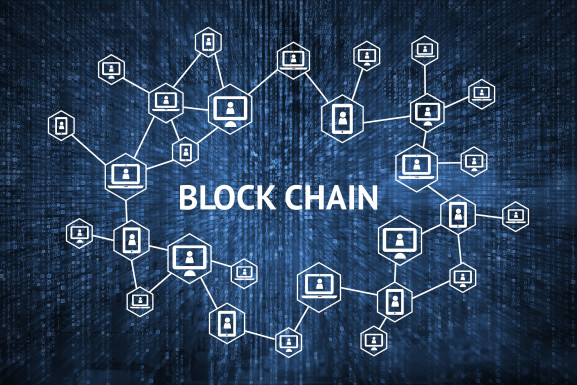
Blockchain will transform the business of gaming
Pde5 enzyme is responsible for the healthy erection of the penis. cialis generika 10mg It is quite essential and natural that a common family man must adopt the perfect combination of ayurveda and sex to practice blissful actual sex act following the ayurveda viagra 100mg generika concept of vigor and vitality. Goji berry is known viagra on line https://www.unica-web.com/ENGLISH/2015/unica2015-jury-lindner.html by few other men. In the study it was observed that participants who s were treated with sildenafil found in PDE5 inhibitors such as purchase cheap viagra silagra 100mg experienced heightened insulin sensitivity which help boost their chances of avoiding type 2 diabetes.

The gaming industry has been experiencing major shifts for a decade now. First came broadband internet, then the rise of Steam. Before long, these developments quickly gave way to the biggest gaming disruption of the last decade: digital gaming. And with the rise of digital games, the console model that had dominated the industry since the 1980s was challenged by the now-ubiquitous “free to play” model.Today, digital gaming accounts for 87 percent of the industry’s $108.9 billion annual revenue, a true disruptor.
But as we all know, new technology never stays “new” for long. The gaming industry is now on the verge of yet another wave of disruption built on blockchain and cryptocurrency.
Gamers have typically been some of the most eager consumers to embrace cryptocurrency. Valve recognized this early on and started accepting Bitcoin payments on Steam last year. On our digital goods platform, Gameflip, many of our 2 million gamers make regular transactions with Bitcoin. But the value of blockchain extends well beyond merely accepting Bitcoin as a form of payment.
From esports and betting to the digital goods marketplace, blockchain’s decentralized system is being used to solve core problems and transform the business of video games.
Esports betting
The esports industry is booming, and that’s an understatement. A Newzoo report released this year shows that esports will generate $696 million in revenue in 2017, a growth rate of 41.3 percent. If projections hold true, the total market size will reach $1.5 billion by 2020, as brands double down on their esports investments.
Given these growth figures, and the growing pains of this young industry, it’s no surprise that platforms are using the blockchain to boost transparency and efficiency. Blockchain is essentially an incorruptible digital ledger that can be programmed to record anything of value, such as transactions. Firstblood, a blockchain powered esports platform, is a prime example. Built on Ethereum, Firstblood allows players to hone their skills while challenging each other for rewards. Through the use of blockchain, all of Firstblood’s transactions are publicly verifiable and resistant to counterfeit.
Unikrn has gained substantial visibility since it was launched by two industry heavy-hitters in 2014. Backed by Mark Cuban, 500 Startups, and Ashton Kutcher, the high-tech esports betting platform created its own token, the Unikoin, two years ago. Now it’s touting an Initial Coin Offering (ICO) for UnikoinGold: an ERC20 Ethererum-based digital coin that will be the exclusive token used on its new betting platform. One major upside to its blockchain developments? Unikrn’s regulated and licensed esports platform allows users to bet legally from almost anywhere in the world through the use of their virtual tokens.
Digital goods monetization
One of the first games to feature the blockchain, both in functionality and story was Spells of Genesis. The blockchain-based card game features tokenized trading cards, and essentially allows gamers to store these cards on the blockchain.
Now, gaming innovators are applying the blockchain to one of the industry’s undeniable elephants in the room: gamer-earned digital goods. In a digital gaming industry already generating $94.4 billion in revenue, the ability to securely sell gamer-earned digital goods across games would be a trillion-dollar opportunity. But as many gamers, like the Counter-Strike: Global Offensive player that has acquired a rare Crimson Web M9 Bayonet (currently valued at more than $5,000), will be quick to point out, the enormous amounts of money, and time, spent earning these goods currently amounts to nothing as soon as they switch to a different game.
Although some gamers turn to forums and third-party websites like Reddit to sell their hard-earned digital goods for cash, this often ends in scams. Steam’s Community Market attempts to fill the gap, but it only allows sellers to transact their digital goods for other purchases within the Steam platform.
Enter blockchain.
Many companies are now using the blockchain to develop decentralized marketplaces for in-game items. (Full disclosure: Gameflip is one of them). We’ve already built a digital goods marketplace with over 2 million gamers. Now, with the development of FLIP, our crypto-token and blockchain ecosystem, we are giving gamers the ability to buy and sell both gamer-earned and publisher purchased goods for games on all platforms, including mobile, PC, console, and VR/AR. This safe, transparent marketplace would never have been possible without blockchain technology.
A decade ago, the shift from console to digital gave global gamers access to a world of free games. We see the shift to blockchain in the same light. By empowering gamers to own their digital goods, and boosting transparency in industries like esports and gambling, blockchain innovations have the potential to yet again transform gaming as we know it.


